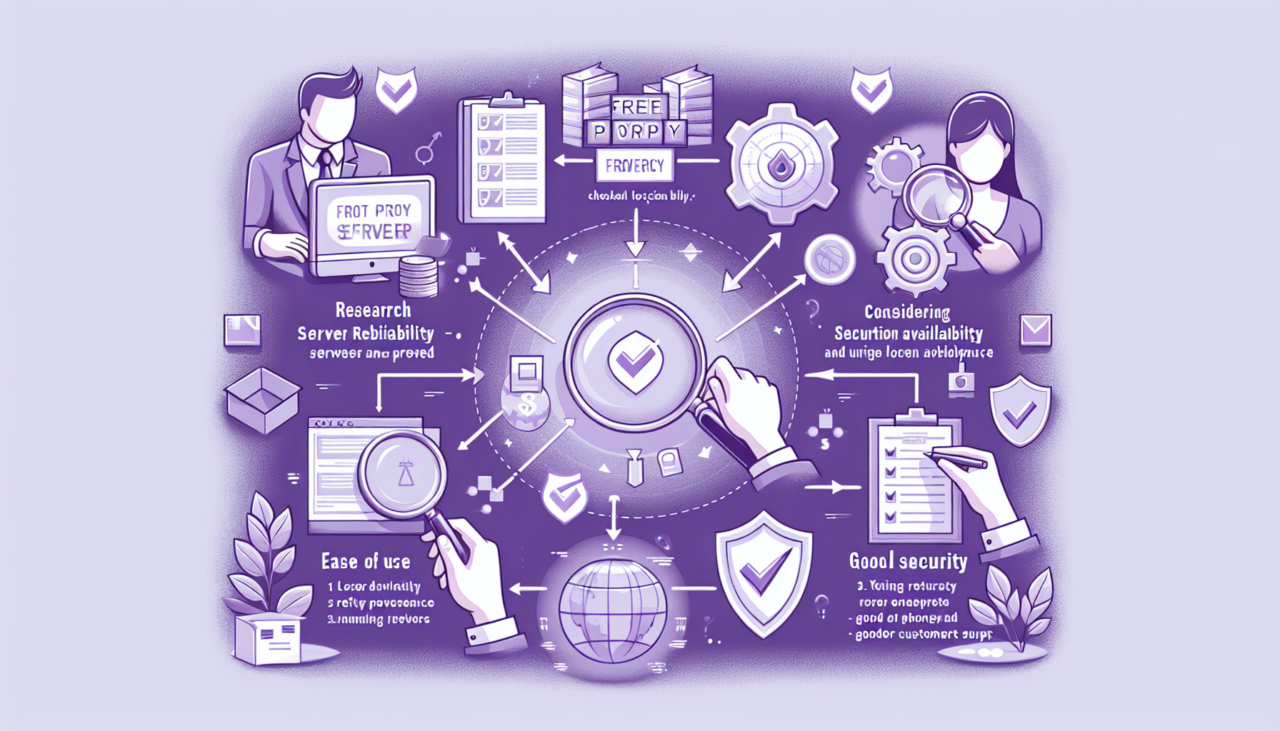In today’s digital age, online privacy and security have become paramount. Whether you’re looking to protect your personal information, access geo-restricted content, or maintain anonymity while browsing, proxy servers can be an invaluable tool. However, choosing the best free proxy server can be daunting due to the myriad options available. This guide will walk you through the essential considerations and help you make an informed decision.
What is a Proxy Server?
Before diving into how to choose one, it’s crucial to understand what a proxy server is. A proxy server acts as an intermediary between your device and the internet. When you request a web page, the proxy server fetches it on your behalf and forwards it to you, masking your IP address in the process.
Benefits of Using a Proxy Server
- Anonymity: Proxy servers hide your IP address, providing a layer of anonymity while browsing.
- Access Control: Organizations use proxies to control employee internet usage and block malicious content.
- Bypass Geo-restrictions: Proxies can help access content restricted in your geographical location.
- Improved Security: They can protect against malicious websites and provide a buffer against direct attacks.
Key Factors to Consider When Choosing a Free Proxy Server
1. Reliability and Uptime
A reliable proxy server should have a high uptime rate, ideally above 95%. Frequent downtimes can disrupt your browsing experience. Check user reviews and technical specifications to ensure the proxy’s reliability.
2. Speed and Performance
Free proxy servers often come with speed limitations due to bandwidth constraints. Look for servers with minimal latency and adequate speed for smooth browsing. Many websites offer speed tests to evaluate performance.
3. Security and Privacy
Security is paramount. Ensure the proxy server uses HTTPS to encrypt data and offers robust privacy policies. Avoid servers that log your activity, as this can compromise your anonymity.
4. Server Location
Choose a proxy with servers in multiple locations to bypass geo-restrictions effectively. This also helps in selecting the nearest server for better speed.
5. Compatibility
Ensure the proxy server is compatible with your device and browser. Check for support for various protocols like HTTP, HTTPS, and SOCKS.
6. User Interface and Ease of Use
A user-friendly interface is vital, especially for beginners. Look for servers that offer easy configuration and clear instructions.
Popular Free Proxy Servers
Here’s a comparison table of some popular free proxy servers:
| Proxy Server | Reliability | Speed | Security | Server Locations | Compatibility | Ease of Use |
|---|---|---|---|---|---|---|
| Hide.me | High | Medium | High | 5+ | Multi-device | Very Easy |
| KProxy | Medium | Medium | Medium | 8+ | Browser-only | Easy |
| ProxySite | High | Medium | Medium | 20+ | Multi-browser | Very Easy |
| HMA VPN Proxy | Medium | Medium | High | 190+ | Multi-device | Easy |
| 4everproxy | Low | Low | Low | 15+ | Browser-only | Moderate |
How to Set Up a Proxy Server
Setting up a proxy server can vary depending on the device and browser. Here’s a general guide for setting up a proxy on Google Chrome:
Step 1: Access Proxy Settings
- Open Google Chrome.
- Click on the three vertical dots in the top-right corner and select “Settings.”
- Scroll down and click on “Advanced.”
- Under the “System” section, click on “Open your computer’s proxy settings.”
Step 2: Configure the Proxy
- In the proxy settings window, enable the manual proxy configuration option.
- Enter the proxy server’s IP address and port number.
- Save the changes and close the settings window.
Step 3: Test the Proxy
Visit a website to ensure the proxy is working correctly. If configured properly, your IP address should appear different.
Conclusion
Choosing the best free proxy server involves assessing various factors, including reliability, speed, security, and compatibility. While free proxies offer basic functionality, they may come with limitations. For enhanced features and security, consider upgrading to a paid proxy service.
By understanding your needs and evaluating available options, you can select a proxy server that provides the anonymity, access, and performance you require. Always stay informed about the latest developments in proxy technology to make the most of your online experience.


Comments (0)
There are no comments here yet, you can be the first!